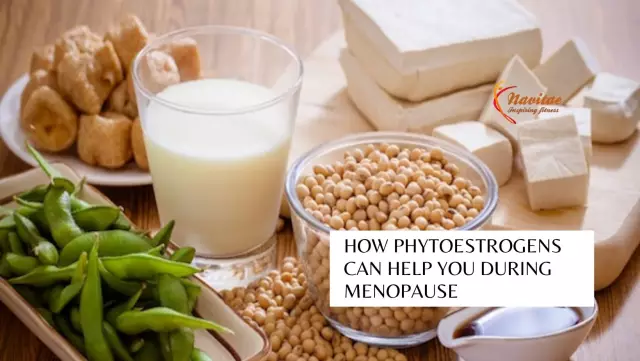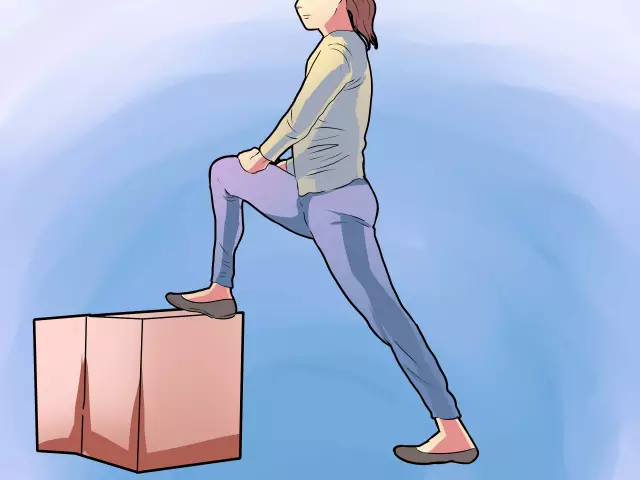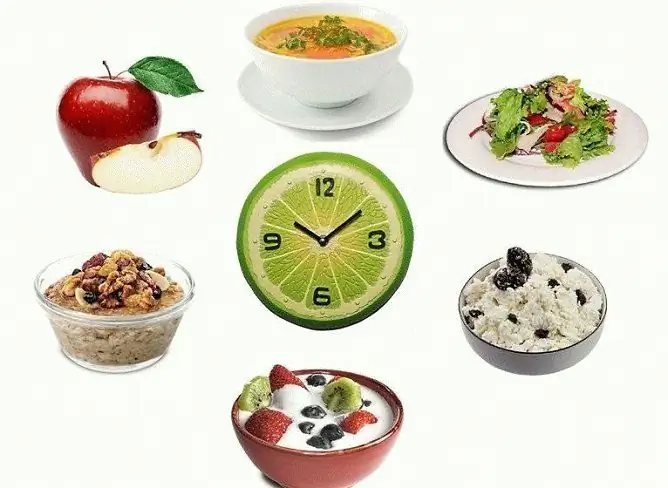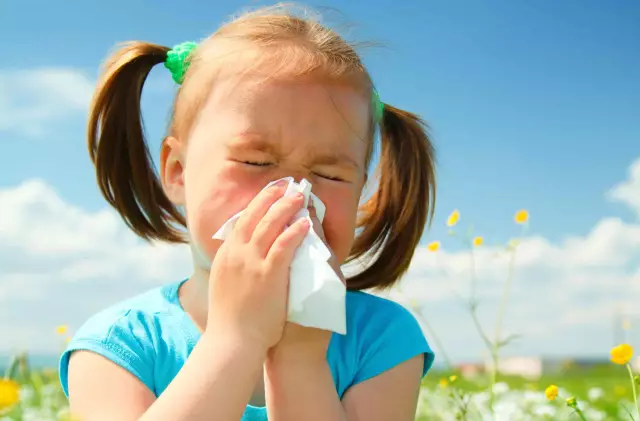- Author Rachel Wainwright wainwright@abchealthonline.com.
- Public 2023-12-15 07:39.
- Last modified 2025-11-02 20:14.
Phytoestrogens - what are they and how can they help with menopause?
About half of women during menopause or perimenopause experience various uncomfortable symptoms - hot flashes, night sweats, insomnia, high blood pressure, depressed mood, irritability, etc. The malaise leads to a significant decrease in the quality of life. Modern gynecology is trying to help with hormone replacement therapy. However, its use is not always possible due to the presence of contraindications or the patient's unwillingness to drink hormonal drugs. In such cases, herbal remedies are chosen to improve well-being, which have a positive effect, but do not have the risks inherent in true hormone therapy.

Background
For centuries, women around the world have used herbal remedies to solve gynecological problems, including to alleviate the symptoms of menopause. In the past few decades, there has been an increase in the use of herbal remedies in postmenopausal women. Thus, in the United States of America and England, approximately 80% of patients take supplements after the cessation of the menstrual cycle, while almost 70% are completely satisfied with the result.
The main active component of such funds are phytoestrogens, which are chemically very close to female sex steroids and exhibit little hormonal activity.
Phytoestrogens were first isolated in 1926. However, their active introduction into medicine began after a detailed analysis of the world's epidemiological data. It turned out that residents of Japan practically do not experience vasomotor complaints during menopause (the prevalence of this condition is only 5-10%). Such a paradox may be associated with the dietary habits of the inhabitants of the Land of the Rising Sun. Their daily diet, which is rich in soy products, contains 20 to 150 mg of natural estrogens. For comparison, in the diet of European women, the share of these components is no more than 5 mg, while the frequency of climacteric disorders is 70-80%. In addition, in Japan, the prevalence of heart disease and osteoporosis in menopause and menopause is an order of magnitude lower than in Europe. All this prompted scientists to actively study the chemical and therapeutic properties of natural "hormones".
Types of phytoestrogens
Currently, 3 classes of phytoestrogens are most studied (there are 6 classes in total).
- Isoflavones (genistein, daidzein, biocanin A, etc.) are especially abundant in soybeans, peas and clover, as well as tofu. By the way, one of the assumptions about the reasons for Japanese longevity lies in the peculiarities of their diet with a lot of soy products.
- Lignans - predominant in flax seeds. Also found in nuts, spinach, broccoli, garlic and parsley.
- Kumestans - dominate in Brussels sprouts, red clovers and alfalfa.

How Isoflavones Work
Perhaps the most commonly used are soy isoflavones. Genistein is one of the members of the isoflavone class, which is increasingly included in natural remedies for menopause. This substance is chemically similar to estrogen.
Plant isoflavones are chemical compounds with sugars. They are rapidly absorbed in the intestines and undergo metabolic changes under the influence of the intestinal microflora. This forms an active fraction, which helps the female body.
In different tissues, phytoestrogens are capable of exerting both proestrogenic and antiestrogenic effects. After the cessation of menstruation, the plant analogues of female steroids have a stimulating effect on the most vulnerable target organs (heart, blood vessels and bone tissue), and on the uterus and mammary glands, on the contrary, they have a suppressive effect, thereby protecting from excessive cell division, which can cause tumors.
Genistein is part of many complexes to improve the quality of life for women during menopause. For example, the Italian formula for normalizing sleep and maintaining the female body Flavia Night contains genistein, which softens the manifestations of hormonal changes. In addition, Flavia Night contains:
- melatonin - an additional source of sleep hormone, which promotes better sleep and better sleep;
- magnesium - helps to reduce cardiovascular risks. participates in lowering blood pressure and preventing thrombus formation, also has a calming effect;
- B vitamins - restore metabolism in nerve cells and increase the resistance of the nervous system to stress;
- alpha-linolenic acid - actively combats free radicals, the number of which increases with physiological aging;
- calcium and vitamin D - help to strengthen bone tissue and thereby reduce the risk of menopausal osteoporosis and related fractures.
Enough 1 capsule Flavia Night before bedtime to make the manifestations of menopause less uncomfortable.

The benefits of phytoestrogenic agents
Phytoestrogens have practically no contraindications. Indisputable indications for the use of these remedies include:
- contraindications for menopausal hormone therapy;
- the patient's reluctance to take hormones;
- climacteric syndrome of mild and moderate severity.
The benefits of phytoestrogenic agents are obvious. Among the main ones it is worth highlighting:
- high bioactivity combined with good tolerance;
- gradual but persistent reduction in neurovegetative symptoms (hot flashes, sweating, insomnia, etc.);
- participation in the long-term protection of the body;
- lack of addiction;
- the possibility of long-term use, especially in the presence of chronic pathologies;
- versatile direction of action and solution of several problems at once;
- good compatibility with synthetic drugs.
Phytoestrogenic therapy is considered a relatively safe way to correct the manifestations of menopause. During the observation period, no toxic effects were detected.
Long term prospects
Herbal analogs of female steroids help not only to feel the momentary effect associated with the relief of early manifestations of menopause. These substances help to protect the body in general against menopausal estrogen deficiency.
The US FDA approves the use of foods and substances with an increased amount of soy proteins as a way to reduce cardiovascular disease. A number of studies have shown that such a soy diet helps to reduce the incidence of heart disease, cases of malignant tumors of the breast and uterus, and also reduces the intensity of vasomotor complaints in menopause compared to those patients who eat according to the standard scheme. European gynecologists also advise taking soy-based drugs to combat not pronounced manifestations of menopause, as well as to prevent healthy women in menopausal age.
Cardiovascular protection
Estrogenic deficiency developing in menopause leads to an increase in "bad" cholesterol in the blood and, as a consequence, an increase in the risk of coronary artery disease and arterial hypertension. Herbal remedies with estrogen-like action can be methods of primary and secondary prevention of heart and vascular diseases. Phytoestrogens help to reduce the level of "dangerous" atherogenic lipoproteins, improve endothelial function and lower blood pressure. These substances trigger the synthesis of nitric oxide, which protects the inner lining of the vessel and has a direct vasodilator effect. For example, alpha-linolenic acid, which is part of the Flavia Night formula, helps prevent high blood cholesterol levels.
For maximum realization of cardiovascular protection, not only the intake of phytohormones is important, but also dietary correction. It is recommended to reduce the total proportion of fat, especially saturated fat, increase the number of foods with polyunsaturated fatty acids (for example, the Mediterranean diet), and also increase the content of fruits, vegetables and legumes in the diet. This will help reduce the risks of ischemic heart disease.

Fight osteoporosis
Most often (95% of cases), osteoporosis occurs in women with a significant decrease in estrogen levels as a result of menopause. This pathology is based on the discrepancy between the formation of bone tissue and its resorption. The danger of osteoporosis lies in the increased risk of fractures.
Soy isoflavones (genistein) have a positive effect on bone mineral density. Phytoestrogens more effectively increase the mineral strength of bone tissue in conjunction with calcium and vitamin D. Therefore, often (for example, in the Flavia Night complex), genistein and calcium with vitamin D.
Climax is a difficult but natural period in the life of every woman. Using modern means, for example, phytoestrogens, you can reduce the manifestations of menopause and live a normal active life.
Found a mistake in the text? Select it and press Ctrl + Enter.






